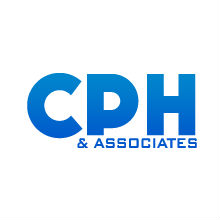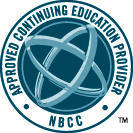|
MESSAGE from the Licensing Board, GA COMPOSITE BOARD OF PC, SW, MFT Complaint informaton. CLICK HERE and read the licensing board directions below. Or use this Link: http://sos.ga.gov/plb/submitcomplaint.php Please note that Licensed Professionals must report, it is written in the Code of Ethics FILE THE COMPLAINT clickhere
Are you a Counselors and see an issue (it is an Ethics requirement to file a complaint) The Licensing Board Complaint system protects the "Whistleblower(s)"
Explanation of Complaint Process Certain businesses and professions have been determined by the State as affecting the health, safety, and welfare of the public. Persons practicing in these businesses and professions, with some exceptions, are required by state law to be licensed under the Professional Licensing Boards (PLB) Division. These requirements are published in Georgia law; the Official Code of Georgia Annotated, (O.C.G.A.) Title 43. General Licensing Requirements The Boards are charged with licensing persons who practice regulated businesses and professions. Licensees must have successfully completed specific requirements, such as education, experience, and examination. Licensees are required to maintain a current license that must be renewed every two years.
Complaint Process
- To file a complaint concerning the practice of a licensee, the complaint must be submitted in writing to the appropriate board at 237 Coliseum Drive, Macon, GA 31217-3858 or submitted online through the form that can be found at http://sos.ga.gov/plb/submitcomplaint.php. An acknowledgement will be sent to you from the board upon receipt of the complaint.
- The complaint must include your name, address and telephone number; the name and address of the person being reported; a detailed description of the violation, and any other pertinent information, which includes any supporting documents (i.e. business/patient records, cancelled checks, billing statements, proposals) that could be used to support your complaint.
- Boards only have the legal jurisdiction over an individual’s license to practice and can only discipline an individual if there is found to be a violation of the laws and rules governing practice.
- Boards generally do not accept or process anonymous complaints. (contact the LPCA office if you have a concern about reporting)
Investigations
- Complaints are given serious consideration by the board, and further investigative action may be taken, if appropriate. A referral of the complaint for further investigation does not necessarily mean that a licensing violation has occurred, and you may or may not be contacted by a board Investigator.
- Investigations are completed as soon as possible, depending upon the nature and circumstances of the complaint.
- Investigations are confidential by law; we are unable to divulge receipt of or updates on the status of a complaint over the phone.
- Georgia law requires that investigative files are confidential for any purpose other than a hearing before the board; however, the board is authorized to release the records to another enforcement agency or lawful licensing authority.
Unlicensed Practice
- If a complaint is submitted regarding unlicensed practice, the complaint must include the name of the person and/or business that is practicing without a license and the address where unlicensed practice is occurring. Also, please include copies of any advertisements or other supporting documentation that you may have received regarding the unlicensed practice.
- Persons who practice a regulated business or profession without a license may be ordered to cease and desist the practice and may be fined by a board. • If a cease and desist order is refused by the unlicensed individual, the board is required to hold a hearing on the matter.
- The board may also petition the court for an injunction against further unlicensed practice.
- Many licensing laws also subject unlicensed persons to criminal prosecution by local authorities.
Disciplinary Action
- A board may discipline a license holder if the board determines that a violation of the board’s laws, rules and/or regulations has occurred. A licensee who violates these laws, rules and/or regulations may be subject to disciplinary action, such as a fine, reprimand, suspension or revocation of the license.
- When a Board seeks to sanction a license holder and the license holder does not voluntarily enter into a consent agreement/order with the board, the board may be required to hold an Administrative Hearing. When cases proceed to a formal hearing, the decision is made by an administrative law judge in accordance with the Georgia Administrative Procedures Act. If a hearing is conducted, the complainant (you) may be called upon to testify, and your identity as a complainant may become known.
- After the formal hearing is conducted, the administrative law judge issues a ruling (Initial Decision and recommended disciplinary action). The licensee may request, or the board on its own, may seek review of the administrative law judge’s decision. After the final decision is issued, the licensee may appeal that decision to the Superior Court of Bibb County.
- The disciplinary procedure is lengthy and may take months to complete. However, it is designed to insure due process and to protect the rights of the individuals involved.
Business Practice/Billing Disputes
- Most boards generally do not have legal jurisdiction over business practices/billing/fee disputes. The boards have no authority to set business fees or settle business fee disputes. Seeking legal counsel or seeking a remedy in the civil court arena for issues dealing with business practices/billing/fee disputes is an option. Possible Resolutions to Complaints
- Close the complaint with no violation/insufficient evidence – you will be notified of this action.
- Close the complaint with a letter of concern - this action is taken if there is no violation of the laws and rules governing practice but the board desires to express its concern to the practitioner surrounding the complaint. You will be notified that the complaint has been closed; however, a letter of concern is private and cannot be shared.
- Close the complaint after an inspection – Inspection reports are public information.
- Close complaint with an Order for Monies received – this action is taken when a fine has been paid for a violation that was discovered during an inspection. This information is public.
- Close the complaint with a private consent order – the action is taken when there is a violation of the laws and rules governing practice. However, the matter is closed with a private agreement between the licensee and the board. A private consent order is private and cannot be shared.
- Close the complaint with a public consent order – the action is taken when there is a violation of the laws and rules governing practice. The matter is public and you will be notified of the Board’s decision. This information is posted on the licensees’ public license record.
What to expect
- You may expect the state board to be genuinely concerned with your complaint. It will be reviewed and investigated thoroughly. You will receive notice from the board when the complaint is received. If the complaint does not fall within the legal jurisdiction of the board, you will receive notice to that affect. When appropriate, the board will investigate and resolve the complaint.
- Please remember that Investigations are confidential; we are unable to provide updates concerning the status of a complaint. Once the investigative process is completed, you will be notified.
Conclusion
The state boards expect that the matter giving rise to your complaint will be handled in a manner which will give you confidence in our earnest desire to protect the public and to improve the regulated businesses and professions.
|



